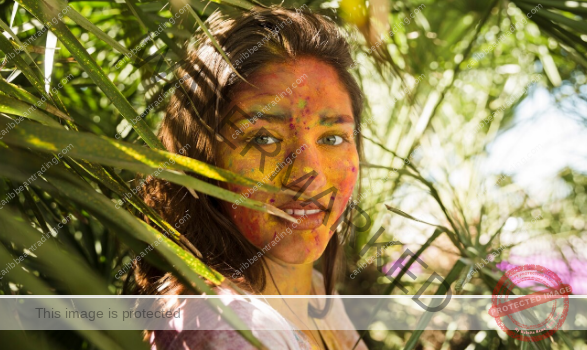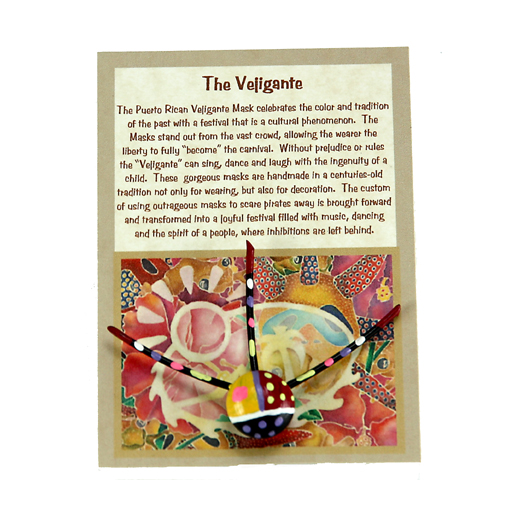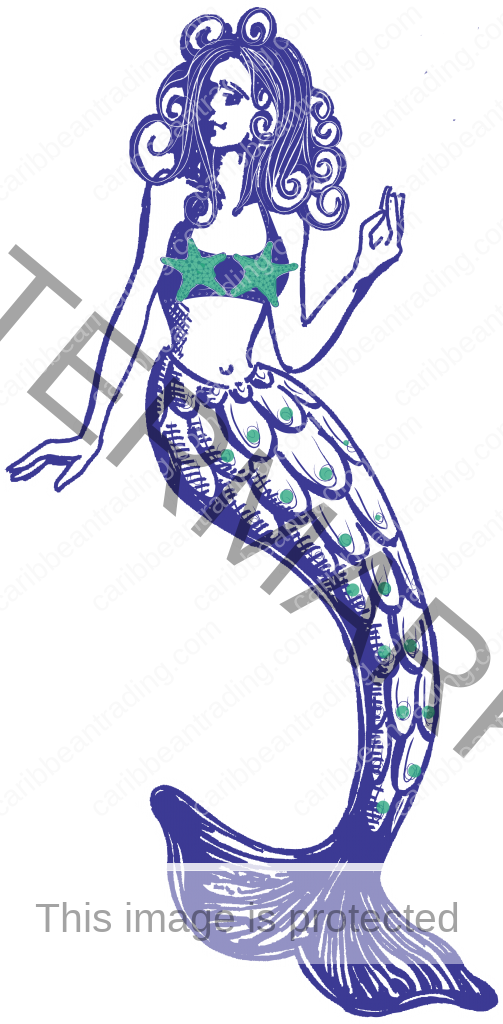Caribbean History
10 Things You Didn’t Know About Caribbean Culture
The Caribbean, a region brimming with vibrant cultures, rich histories, and diverse traditions, is much more than a tropical paradise of white sandy beaches and crystal-clear waters. Each island within the Caribbean has its own unique identity, shaped by centuries of colonization, migration, and indigenous influences. Beyond the reggae music and carnival celebrations often associated with this region, Caribbean culture holds many fascinating, lesser-known facets. Here are ten things you probably didn’t know about Caribbean culture.
1. The Caribbean’s Indigenous Roots Still Resonate
While the Caribbean is often associated with the descendants of African slaves and European colonizers, the islands were originally home to indigenous groups, such as the Taíno, Carib, and Arawak peoples. Their influence is still felt today, especially in language, food, and traditions.
Words like “hurricane” and “barbecue” are derived from Taíno, while cassava, a staple food across the islands, has indigenous origins. Despite the decimation of their populations due to European conquest and diseases, the legacy of these groups remains alive in modern Caribbean culture.
2. The Caribbean Was a Crucial Hub in the Global Spice Trade
The Caribbean’s role in the global economy during the colonial period was significant, but many people don’t realize the extent to which it shaped the spice trade. Beyond sugarcane and tobacco, the islands produced spices such as nutmeg, cinnamon, and allspice. Jamaica, in particular, is known for its cultivation of allspice (locally known as pimento), which has become a cornerstone of the island’s culinary scene, especially in dishes like jerk chicken. The impact of the spice trade is evident in the flavorful, aromatic dishes typical of Caribbean cuisine.
3. Caribbean Languages: More Than Just Creole
Most people are aware of Caribbean nations speaking Spanish, English, or French, but there’s a wider linguistic diversity in the region than commonly thought.
Many islands have their own distinct Creole languages, which are often a blend of European languages and African dialects. Haitian Creole, for example, is a blend of French with African influences, while in Jamaica, Patois (often referred to as Jamaican Creole) is a colorful mix of English and African languages. In addition, some islands also retain traces of their indigenous languages, further contributing to the linguistic mosaic of the region.
4. The Caribbean Has Influenced Global Music More Than You Realize
The region’s contributions to the global music scene are vast and far-reaching. While reggae, made famous by Bob Marley, is perhaps the most internationally recognized Caribbean genre, it’s just the tip of the iceberg. Calypso, soca, zouk, dancehall, and reggaeton also have deep roots in the Caribbean, each offering unique rhythms and cultural narratives. Trinidad and Tobago’s steelpan music, invented from repurposed oil drums, is a perfect example of Caribbean innovation. Today, Caribbean beats continue to influence global pop music, with artists like Rihanna, Sean Paul, and Shaggy bringing the sounds of the islands to mainstream audiences.
5. Caribbean Carnival Has Deep Historical Significance
Carnival is one of the Caribbean’s most famous cultural exports, attracting millions of tourists each year. However, its origins are deeply tied to the region’s history of slavery. Carnival began as a way for enslaved Africans to mock their European oppressors by mimicking their grand masquerade balls while infusing the celebration with African music, dance, and spiritual practices. Over time, carnival evolved into a celebration of freedom and resilience, with each island putting its own spin on the event. Trinidad and Tobago’s carnival, in particular, is world-renowned for its colorful costumes, lively parades, and vibrant soca music.
In addition to the grand festivities, Carnival season is also a time when locals and tourists alike indulge in various forms of entertainment, including gambling at some of the best online casinos in the world. These platforms provide an opportunity for people to experience the excitement of casino gaming from the comfort of their own homes or while enjoying the festivities on the go. With easy access to games like slots, poker, and blackjack, the Caribbean Carnival brings together a spirit of celebration, tradition, and modern digital entertainment. Whether it’s the thrill of a parade or the excitement of placing bets, Carnival offers something for everyone.
6. The Caribbean’s Food is a Fusion of Cultures
Caribbean cuisine is a delightful mix of African, European, Indigenous, and East Indian influences. Each island has its own culinary specialties, but many dishes are rooted in the concept of “survival foods,” which slaves created using limited ingredients. Dishes like Jamaica’s ackee and saltfish, Barbados’ cou-cou and flying fish, and Trinidad’s roti are all examples of how various cultural traditions merged over time. Spices are central to Caribbean cooking, with flavors like scotch bonnet peppers, ginger, and thyme giving the region’s cuisine its distinct, fiery flair.
7. Afro-Caribbean Spiritual Practices Still Thrive
Many Caribbean islands have a deep connection to African spiritual traditions, which have blended with Christianity over time. One such practice is Obeah, found in Jamaica and other parts of the Caribbean, which is a system of folk magic, healing, and religious beliefs that stems from West African traditions. Similarly, in Haiti, Vodou (commonly referred to as Voodoo) is an important spiritual practice that blends elements of Roman Catholicism with African spirituality. These practices have often been misunderstood and stigmatized but remain an integral part of Caribbean identity.
8. The Caribbean is Home to Some of the Oldest Jewish Communities in the Americas
It might come as a surprise, but some Caribbean islands have a long history of Jewish settlement, dating back to the 17th century. Jews fleeing persecution in Europe and later the Inquisition in Spain and Portugal found refuge in Caribbean colonies, where they played a key role in the region’s sugar and trade industries. Today, the island of Curaçao boasts the oldest synagogue in continuous use in the Americas, and there are still active Jewish communities across islands like Barbados, Jamaica, and Suriname.
9. Cricket is More Than Just a Sport in the Caribbean
In many parts of the Caribbean, cricket is not just a game; it’s a passion that unites nations. The sport was introduced to the islands by the British during colonial times, but it quickly became a source of national pride and a way for Caribbean people to assert their identity.
The West Indies cricket team, made up of players from various Caribbean nations, was a dominant force in the sport during the 1970s and 1980s, and cricket matches remain a major cultural event across the region. The sport continues to be a unifying force, reflecting the islands’ shared history and sense of community.
10. Caribbean Folklore is Filled with Fascinating Characters
Caribbean folklore is rich with colorful characters and supernatural beings that reflect the region’s history and cultural diversity. One of the most famous is the “duppy,” a ghost or spirit found in Jamaican folklore, believed to roam the earth at night. In Trinidad and Tobago, the “soukouyan” is a vampire-like figure who sheds her skin at night to suck the blood of her victims. These stories, passed down through generations, often blend African, European, and indigenous mythologies and continue to play a significant role in Caribbean oral traditions.
Conclusion
Caribbean culture is an intricate tapestry of influences from across the globe, shaped by centuries of migration, colonization, and resilience. From its indigenous roots to its global impact on music and cuisine, the region’s culture is as diverse as its landscape. These ten lesser-known facts offer a glimpse into the richness and complexity of Caribbean life, revealing a region that is far more than just a vacation destination but a place of profound cultural significance. Whether through its languages, spiritual practices, or artistic contributions, the Caribbean continues to leave an indelible mark on the world stage.







